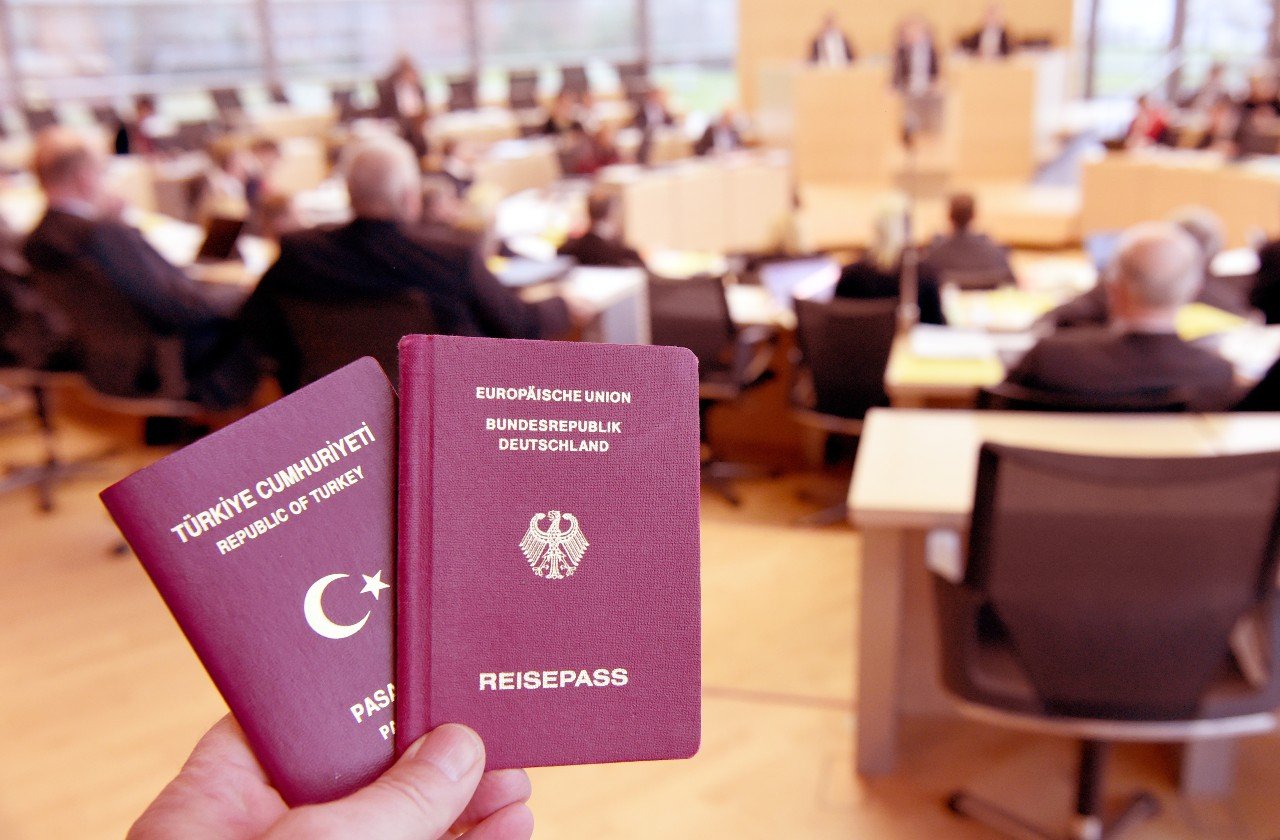Germany is well on the way to drastically changing its citizenship laws.
In future, foreign residents won’t have to choose between becoming German or holding their original passport. Under the new law, they will be allowed to hold multiple nationalities.
Up to this point, many people from outside the EU had to give up their existing passport when naturalising in Germany.
Meanwhile, people will be able to apply for citizenship after five years instead of the current eight, and after three years in some cases of good integration and C1 German skills.
Last week the Bundestag approved the law and it is set to be voted on (and is expected to pass) in the Bundesrat on February 2nd. Around three months later, the new law will take effect.
READ ALSO: German Bundesrat to debate dual citizenship law on February 2nd
Just how important is this law change for Germany?
“I think it’s very, very important and I would go as far to say, which is something that I don’t say that lightly, it is a historic moment in German history when it comes to citizenship legislation, but also in general,” Zeynep Yanasmayan, head of the migration department at the German Centre for Integration and Migration Research, told The Local’s Germany in Focus podcast.
Yanasmayan said reducing the residency period needed for citizenship and allowing dual citizenship is long overdue. She added that Germany was “lagging behind” many other countries, especially as it already calls itself an “immigration country”.
Around 14 percent of Germany’s 84 million people – just under 12 million – don’t hold German citizenship and about half this group has been in the country for more than 10 years.
Experts believe the legislation will have an effect on long-time residents.
“What we know from research is that usually people tend to naturalise quickly after they become eligible,” said Yansmayan. “So if you’ve been here 20 years and never intended to do so, usually that doesn’t change.
“But I think the importance of the changes that are introduced now might actually trigger that kind of an effect. I think we might see something a little bit exceptional in the sense that people who have been here longer, and did not naturalise might actually also go to the offices to do that.”
What impact will the law have on Germany’s relationship with migrant communities?
A big part of the new law is aimed at the Gastarbeiter (guest worker) generation who came to Germany to fill the demand for labour after the war. Many people from this community are Turkish but have never felt able to become German without the option for dual citizenship.

Will it make these communities – and others – feel more welcome and integrated in Germany?
Yanasmayan said that not ordering people to give up their attachment to their origin country, which is a big part of identity, when becoming German would make naturalisation a more positive experience and make them feel more accepted.
PODCAST: Historic rail strike hits Germany and when should you apply for citizenship?
“But what I also find really important in the law, is the whole idea of recognition of the previous generation of migrants or the so called ‘guestworker’ generation,” she added.
“We talk a lot about the so called ‘integration problems’ that people would like to refer to quite often, which I have my doubts on.
“But right now, this law actually made a very open recognition of what these people have sacrificed to build Germany. And I think that also has an impact in terms of the emotional aspect of it.”
However, Yansmayan urged Germany to take more action.
“What it does not do, and cannot do, is to foster what’s commonly called in Germany, as this ‘Willkommenskultur’ (a welcoming culture and positive attitude towards migrants).
“When you watch the migration debates right now, it is unfortunately, again, going in a direction where we’re not always talking very positively about migration.
“And that has a bigger impact than the law change, in terms of making people feel accepted and part of the society. And it would help if they’re not being scapegoated for every little problem that we face in the society.”
KEY POINTS: What you need to know about Germany’s citizenship law reform



 Please whitelist us to continue reading.
Please whitelist us to continue reading.
Member comments